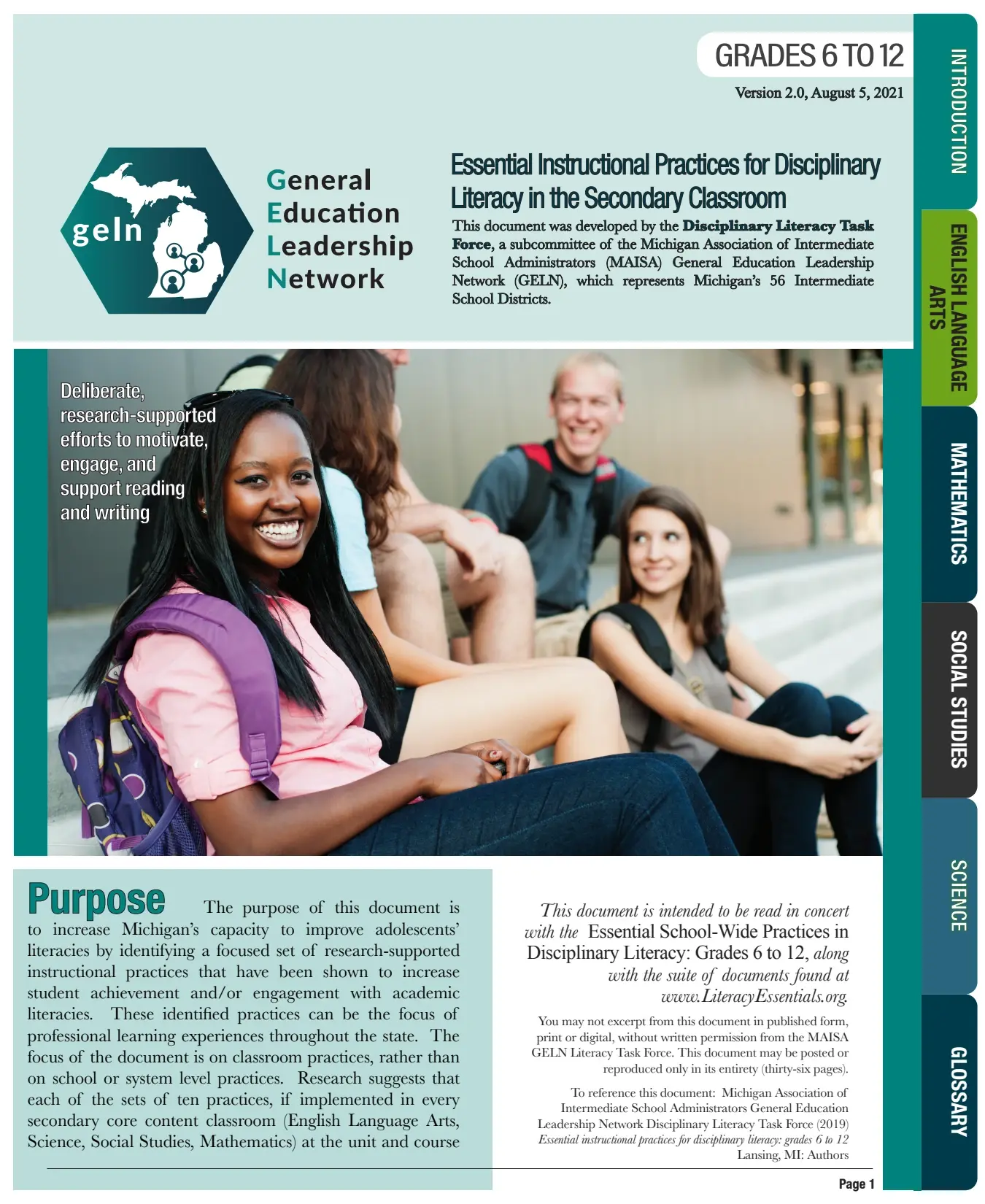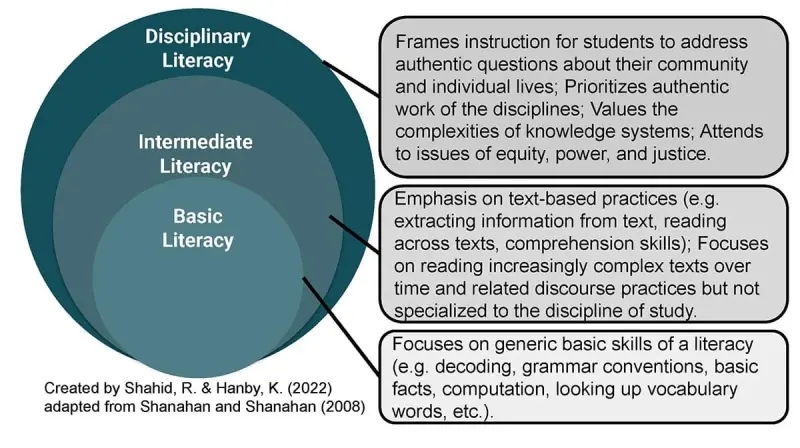Disciplinary Literacy Teachers as Disciplinary Literacy Practitioners

Professional Resources
Essential Practices for Disciplinary Literacy Instruction in Secondary Classrooms
Essential School-Wide Practices in Disciplinary Literacy: Grades 6 to 12
GELN Taskforce Website
Disciplinary Literacy Task Force Blog
Disciplinary Literacy and the SAT
Civic Implications of Disciplinary Literacy
Literacy as a Civil Right in the Past, Present, and Future
What is Disciplinary Literacy?
“Disciplinary literacy refers to the specialized literacy practices of a particular disciplinary domain or area (e.g. mathematics, history, biology). These practices include the ways that scholars identify, evaluate, use, and produce the wide range of texts and information or data sources typical of their particular discipline, including the specialized reading, writing, and communication practices used to analyze, produce, and share information.
Disciplinary literacy also includes specialized vocabularies and communication norms that shift across purposes and audiences authentic to the discipline. Some scholars include ways of thinking about text and communication as a part of disciplinary literacy.
Disciplinary literacy instruction helps students learn the content and practices of important academic disciplines and also helps them develop critical literacy and thinking skills. This includes, but is not limited to, the use and production of a wide range of texts. Disciplinary literacy instruction also helps to prepare students for critical media consumption, college level learning, and a range of career trajectories.”
-From Essential Practices for Disciplinary Literacy Instruction in Secondary Classrooms

Why Disciplinary Literacy?

Created by Shahid, R. & Hanby, K. (2022) adapted from Shanahan and Shanahan (2008).
Disciplinary Literacy
Frames instruction for students to address authentic questions about their community and individual lives; Prioritizes authentic work of the disciplines; Values the complexities of knowledge systems; Attends to issues of equity, power, and justice.
Intermediate Literacy
Emphasis on text-based practices (e.g. extracting information from text, reading across texts, comprehension skills); Focuses on reading increasingly complex texts over time and related discourse practices but not specialized to the discipline of study.
Basic Literacy
Focuses on generic basic skills of a literacy (e.g. decoding, grammar conventions, basic facts, computation, looking up vocabulary words, etc.).
Related Pages
Wayne County RESA Disciplinary Literacy Team
From its inception, the intent of the 6-12 Essentials has been to provide a roadmap for secondary educators and policy makers to create a more socially just, action-oriented, and literacy-enriched educational experience for youth, especially those who have been historically underserved, marginalized, and underestimated. While disciplinary literacy apprentices students into the literate practices of the academic disciplines, equity-based disciplinary literacy examines how acquiring skills moves students from “having” a set of skills to “doing” something meaningful with the specialized processes, languages, and practices of those disciplines.








